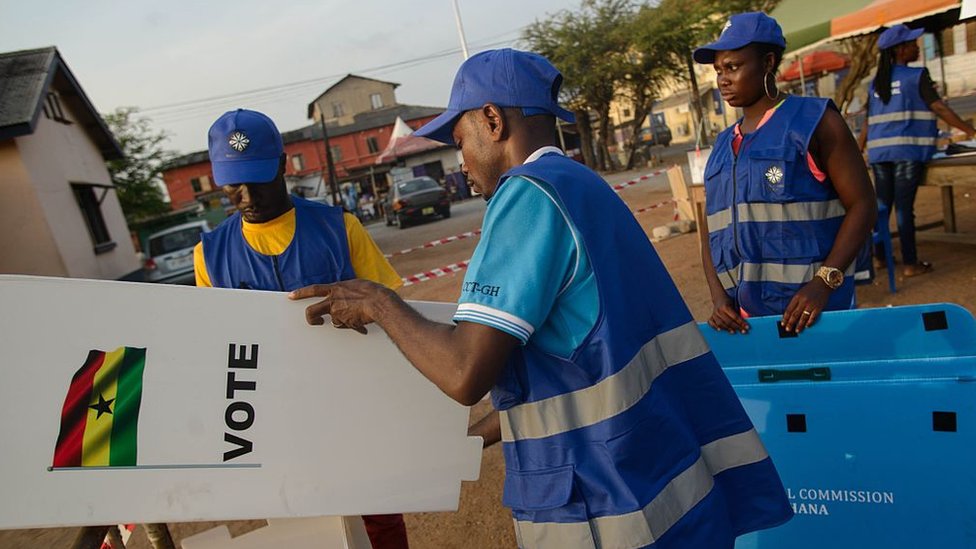info@cdsafrica.org
By-Elections in Ghana: Learning from the Past as Akwatia Heads to the Polls

By-Elections in Ghana: Learning from the Past as Akwatia Heads to the Polls
Introduction
On Tuesday, 2 September 2025, voters in Akwatia will head to the polls for a by-election triggered by the death of the constituency’s Member of Parliament, Ernest Kumi. By-elections are supposed to be straightforward exercises in representative democracy, yet in Ghana, they have often become flashpoints for tension, intimidation, and sometimes outright violence. With Akwatia’s history and recent developments in other constituencies, this election will be closely watched, not just for its outcome, but for whether the country can conduct it peacefully and credibly.
The Constitutional Framework
Ghana’s 1992 Constitution makes clear provisions for by-elections. Under Article 112(5), a by-election must be conducted within 60 days after the Electoral Commission (EC) is notified of a vacancy, except where the vacancy occurs in the last three months before Parliament is dissolved. The EC is empowered under Article 51 to regulate the conduct of such elections, and this is currently guided by the Public Elections Regulations, 2020 (C.I. 127).
Security and public order during such exercises are further reinforced by two key statutes: the Public Order Act, 1994 (Act 491), which regulates public gatherings and prohibits offensive weapons near polls, and the Vigilantism and Related Offences Act, 2019 (Act 999), which outlaws political vigilante groups that have historically disrupted elections.
Troubled History of By-Elections In Ghana
Unfortunately, Ghana’s by-elections have often been marred by violence.
- In Akwatia (2009), Parliament condemned acts of violence and intimidation during a re-run in six polling stations.
- Chereponi (2009) witnessed serious clashes between supporters of the two main political parties.
- In Talensi (2015), campaign and voting-day violence led to injuries and arrests.
- The infamous Ayawaso West Wuogon by-election (2019) became a low point, where masked security operatives stormed polling centres, leading to shootings and injuries. The Emile Short Commission of Inquiry later described these incidents as a breach of electoral security protocols and made far-reaching recommendations.
- More recently, the Ablekuma North parliamentary rerun (July 2025) saw violent disruptions that led to arrests, with eight (8) individuals being charged in connection with the violence.
These incidents show that by-elections, often fought in small constituencies but with high political stakes, can quickly escalate into disorder if security and political actors do not exercise restraint.
What to Expect in Akwatia
The upcoming Akwatia by-election will be tightly contested. Both major parties see the Eastern Region seat as symbolically significant, and campaign activity has already intensified. With national party figures expected to descend on the constituency, tensions could spike, especially at high-turnout polling stations. What matters now is whether Ghana’s institutions and political stakeholders will act differently this time.
The lessons from past by-elections are clear, and Akwatia offers Ghana the chance to show that those lessons have been learned.
For the Electoral Commission
- The EC must ensure transparency by publishing the list of polling stations and collation centre layouts.
- It is also important to enforce strict accreditation for polling agents, media, and observers.
- Polling-station-level results must be posted promptly to reduce misinformation and crowd agitation.
For the Security Agencies
- Properly identified, uniformed officers only should be deployed to polling and collation centres; no masked or plainclothes operatives must be allowed inside polling perimeters.
- Publish a post-election incident report to ensure transparency and accountability.
For Political Parties
Political parties must publicly renounce the use of vigilantes and sign undertakings with the EC and Police to comply with Act 999.
For Media and Civil Society
- Verify incidents before broadcasting to avoid fueling tensions.
For residents of Akwatia
- Respect electoral laws and avoid carrying prohibited items near polling stations.
- Report intimidation or violence immediately to Police officers on the ground.
The Path Forward
Ghana’s democracy is strengthened not just by holding elections, but by holding them well. Akwatia will test whether the country has truly absorbed the painful lessons of Ayawaso West Wuogon and Ablekuma North. The constitutional rules are sound, the legal tools are available, and the security structures exist. What remains is discipline, restraint, and accountability.
If stakeholders act responsibly, Akwatia can be remembered not for violence, but for a peaceful demonstration of the people’s will. That is the only outcome worthy of Ghana’s democratic reputation.